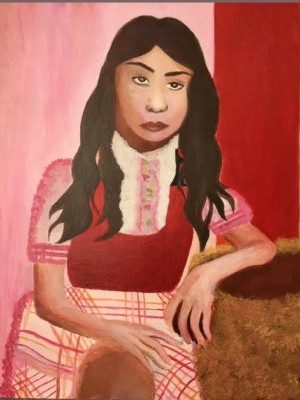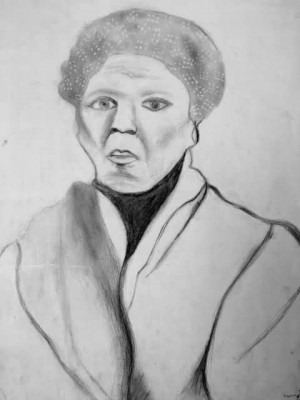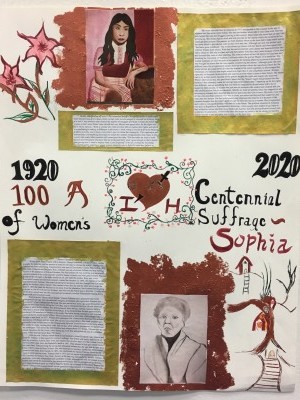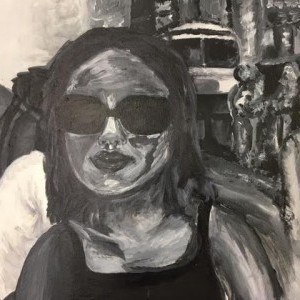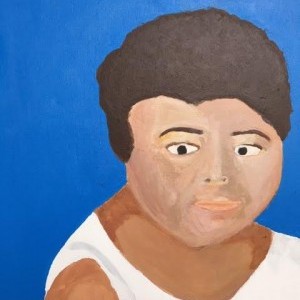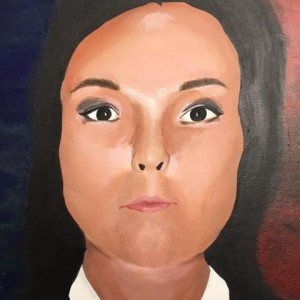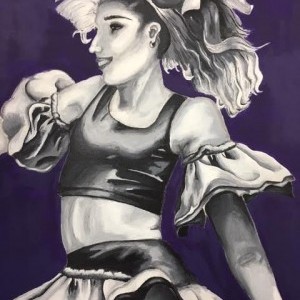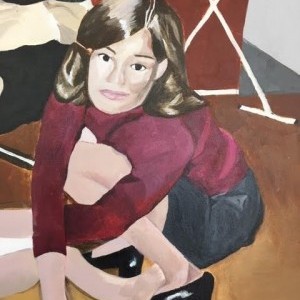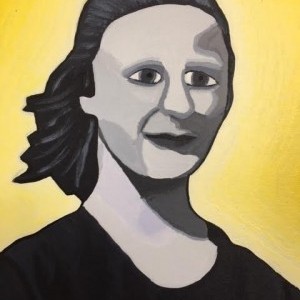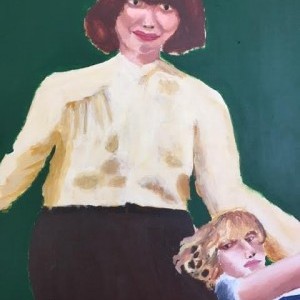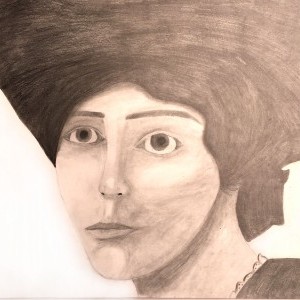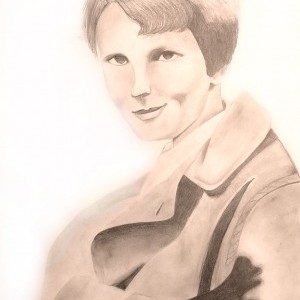Sophia Movsisian
Immaculate Heart High School | Los Angeles, CA | 9-12th Grade
Inspirational Family Member
My Mom
My mom who was born in Armenia, in 1971, immigrated to this country at the age of eighteen and has never voted before. She has one brother with whom she is very close who has now helped her with her struggles moving to this country. Back home she never had an easy time growing up. She always had to work and help provide for her family which she loved to do but could get hard at times. Her parents are both teachers whom at the time didn’t make much money but never failed to provide her with all their love and care.
Although not rich, my mother said “she had a great childhood.” She would always go places with her family and even spend time with her friends from school. With that fun and excitement came chores and responsibilities she had to perform. She was to clean and help her parents with their daily tasks because of how busy and invested they were in their teaching. She went to school all her life before moving here and attending the University of Southern California where she got her Pharm. D in medicine. She studied medicine not only because of her passion for helping others but to prove to the people who brought her down that she was capable of achieving her dreams. Although great, she also suffered from a lot of oppression mostly from her brother whom she was always there for. He would tell her she could never do what she wanted in life which rightfully so discouraged her immensely. As weird as that might sound now, back then it was completely normal. Women, especially in Armenia, faced sexism and oppression even when it came to their family. My mom had to try so hard purely because of her gender, to gain the rights and respect she deserved.
When I interviewed her, she specifically stated that she “doesn’t regret being treated like this because it has ultimately made her stronger and more independent.” Speaking up for her rights was definitely seen as something that you were not supposed to do and came with a lot of negativity from society. A woman was just seen as someone who cooked and cleaned and one who should receive little to no education. Weirdly so, both her parents were very supportive and encouraging towards their daughter and did not appreciate their son’s views. My mom, even with all that criticism from someone who was so close, rose above and beyond that negativity and went after her dreams. She has unfortunately not voted and she believes it is because of the constant thoughts that she wasn’t good enough for who she was as a woman. She is registered and is able to vote and hopefully will want to in the future.
The political situation in Armenia was, and is, a Republic or Representative Democracy where people elect leaders to go listen to their collective voices, and then those leaders get together and talk among themselves and vote on the law. In conclusion, I believe this story has taught my mom to be the strong yet humble woman that she is and she has made sure to raise me the same way.
Historical Figure I Admire
Harriet Tubman
“Every great dream begins with a dreamer. Always remember, you have within you the strength, the patience, and the passion to reach for the stars to change the world.” Harriet Ross Tubman, her birth name being Araminta Ross, was born in Dorchester County, Maryland in 1820. The child of Harriet and Benjamin Ross, Tubman was one of eleven children and was born into slavery in the plantation of Edward Brodess. Her first outside job was working as a nursemaid, where for instance if the child cried she would be beaten violently and with great torment. She had to stay awake all night so the baby would not cry and wake the mother. Ross was a very determined woman and she most certainly wanted her freedom. In 1844, she married a free black man named John Tubman. She ended up taking his last name, and also changed her first name, taking her mother’s name, Harriet.
The constant worry that she and the other slaves might be sold, in 1849, she made the decision to run away from the plantation. Her husband denied going with her, so she left with her two brothers, and followed the North Star to freedom. A while after, her brothers turned back but she continued and eventually reached Philadelphia leading her to begin work as a household maid.
Known as the “Moses of her people,” Harriet Tubman had a prominent role in the Underground Railroad. She was enslaved, escaped, and helped others gain their freedom as a “conductor” of the Underground Railroad. She also served as a scout, spy, guerrilla soldier, and nurse for the Union Army during the Civil War, and is considered the first African American woman to serve in the military. Post freeing herself from slavery, Tubman returned back to Maryland to rescue other members of her family. It is believed that she had approximately conducted 300 members to freedom in the north. She had a strong connection with God and believed that he would aid her efforts. She also threatened to shoot any of her charges who thought to turn back.
In 1871, William Still published The Underground Railroad. He included a description of Tubman and her work. Her success was extraordinary. She made constant and successful visits to Maryland on the Underground Railroad. It would result in her being absent for weeks at a time, running daily risks. She did this while making preparations for herself and her passengers. This shows the determination and independence of Tubman. Tubman also led an armed expedition for the Union Army during the Civil War and guided the raid at Combahee Ferry, which liberated more than 700 slaves. After the war, Tubman raised funds to aid freedmen, joined Elizabeth Cady Stanton and Susan B. Anthony in their quest for women’s suffrage. She settled with family and friends on land she owned in Auburn, New York, and married former slave and Civil War veteran Nelson Davis in 1869, after John, her husband’s death in 1867. They adopted a little girl named Gertie a few years later. Tubman being the caring and influential woman that she was, had an open door policy when it came to those in need. She sold home-grown produce, raised pigs and accepted donations and loans from friends. In 1896, she established the Harriet Tubman Home for the Aged on land near her home.Tubman died in 1913 and was buried with military honors at Fort Hill Cemetery in Auburn, New York.
Society at the time was surrounded by slavery. Tubman, in particular, was a very independent and confident woman. Although she was surrounded by such despair and hatred she remained to stay strong and focused. This encouraged and pushed her even more because it made her want to help her family out of slavery in Maryland. Women like Harriet Tubman have a great impact on our generation today because it is women like her who have made a difference in history for all these years and many more to come in the future.
SOURCES +
What the Project Means to Me
For this art project, I decided to paint my mom who is my biggest inspiration. She always seems to inspire me in the most creative ways, whether it is for school or simply by giving me advice on how I should try and solve a problem. She is always there for me and makes sure to make me her first priority.
I decided to paint my mom when she was about 12 years old, living in Armenia, where she grew up. She loved her childhood but always felt as if she was treated differently than the boys who were around her. Now as a parent, she makes sure that my environment is as equal and fair as it can be, which I am eternally grateful for. I hope my mom knows how much I love and appreciate her, and that I am very honored that I was able to paint her for this project.
Explore the Archive
More From This Class
Click on the thumbnails below to view each student's work.Deadline Extended
There's still time to join Women Leading the Way.
Become a part of our storytelling archive. Enroll your class today.
Join the Project

